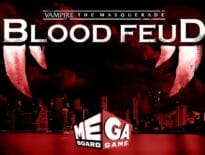There’s an American adaptation of Misfits on the way. Rather than go on about just why it’s gonna be crap in comparison (spoiler, it’s gonna be crap in comparison) instead, it’s much more productive to try and convince you to watch the original. And if you’ve already seen the original series, then it’s probably time for a rewatch.
Misfits aired on E4 in 2009 and ended up being one of the best original superhero TV shows of all time. As a counterculture version of the X-Men or the Fantastic Four, Misfits snuck into the pop culture landscape just before the big boom of the current superhero craze, and managed to accomplish far more than most comic companies would even dare. With a traditional American superhero narrative repackaged into something that has echoes of the Dawson’s Creek story structure, but subverted and packaged in a hyper-realistic vision of modern day Britain, Smallville it ain’t. Talk about Legion all you like, praise the ‘gritty realism’ of the Netflix Daredevil or Punisher series, but Misfits did it better, darker, sexier, and funnier.
The show is about a group of young offenders, working on their community service sentences for a variety of petty crimes. They’re hard at not working when a mysterious storm hits, and they (and their social worker) are hit by lightning that, over time, gives them an array of weird and wonderful superpowers.
Like the Fantastic Four, the powers gained by the bizarre storm are reflective of the character’s personalities. Shy Simon is able to turn invisible, the regretful Curtis is able to jump to the past, the sexually aggressive Alisha is rendered untouchable as skin-on-skin contact results in people becoming uncontrollably sexual towards her. Overly defensive Kelly can read minds. Their insecurities become their gifts.
Super-powered they may be, but they’re a long way from the optimism of Superman, and they lack the altruism of the standard superhero. They’re far more concerned with self-preservation than heroics. It’s hard to imagine a comic run of Spider-Man or Ms. Marvel where the heroes brutally murder social worker after social worker, but it works in Misfits because the probation workers are symbols of adult authority, and their murders are a statement that the Misfits will not have their life choices inhibited by obedience. If Peter Parker had never had that famous ‘responsibility’ speech, then maybe he’d have been right alongside Simon, Kelly, and the rest of the gang, probably being called a paedophile or panty-sniffer by Nathan.
Despite this, one of the reasons why the show is just so fun is that the characters are shown to act heroically. They sacrifice themselves for love and for protest, and they save the world on a number of occasions from cuckoo-like Virtue Mobs, shape-shifters, and even Hitler. The Misfits care little for society, quite secure in the awareness that they are disconnected from it, yet still begrudgingly protecting it from zombie apocalypse, dairy-themed serial killers and brainwashing religious cults. That religious mob are particularly challenging to tackle. “Oh help, everyone has stopped taking drugs and urinating in the streets. Who we gonna tell? This is every policeman and parents wet dream.”
The camerawork and direction are stunning. The location of the estate where the action takes place is undefined, and the character’s variety of accents further reinforce this spatial anonymity; it is everywhere and nowhere at the same time. It is Britain from the myopic view of the disenfranchised, featuring the forgotten youth of the modern world, and they reflect their hopelessness in traditional rebellions. Misfits just looks aesthetically pleasing, with loads of soft focus and tilt-shift camera work happening that adds a sense of surreality to the overall atmosphere, and acts as a lens for a forgotten generation
Most people gave up at the end of season three. The show was clearly suffering from losing so many of the original cast, and season four struggled to cope. In fact, it got really awful. Perhaps inspired by the success of shows like Skins, Misfits in season 4 seemed to drift away from the super-powered shenanigans, and became more of a relationship drama. However, it’s absolutely worth sticking with, because not only does it have some incredible moments (the Four Horsemen of the Apocalypse as hoodies on BMXs, a full-on attack by zombie cheerleaders), it serves as a foundation for the return to form that was season 5, where the brilliant Joe Gilgun manages to portray one of the best character development arcs ever seen on television.
There have been some extreme changes in the presentation of ‘the superhero’ over the years, and Misfits is one of those narratives that subverts it in a realistic manner. The Misfits are cultural representations of an underrepresented generation; they are criminals with no guilt. They are criticised on national television and dubbed the ‘asbo five’, and are shown killing and using other characters with little regard for societal norms and only a vested interest in their own decadent lives.
Misfits is a brilliant, subversive, emotional, loaded with theme, and bloody hilarious look at real-world superheroes. With a cracking soundtrack, an excellent four out of five seasons, fantastic casting, and dialogue better than most entertainment, if you haven’t given Misfits a try, don’t wait for the American version.
About the author
Karl Hughes is a pop culture journalist who spends too much time thinking about geek stuff. Can often be found at comic conventions dressed as someone else, has strong opinions about things that few people care about, and is always trying to sell more copies of his published fiction.


